
Subhas Chandra Bose was an Indian nationalist whose defiance of British authority in India made him a hero among many Indians, but his wartime alliances with Nazi Germany and Fascist Japan left a legacy vexed by authoritarianism, anti-Semitism, and military failure. The honorific 'Netaji' was first applied to Bose in Germany in early 1942—by the Indian soldiers of the Indische Legion and by the German and Indian officials in the Special Bureau for India in Berlin. It is now used throughout India.

Kalahandi district is a district of Western Odisha in India.
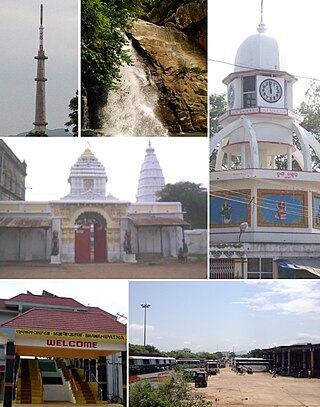
Bhawanipatna is a city and the headquarter of Kalahandi district in the state of Odisha, India. Bhawanipatna has numerous Hindu temples dedicated to different deities. Its name is a combination of the presiding Hindu deity, Bhabani-Sankar, and Patana, which means "place" in Odia.
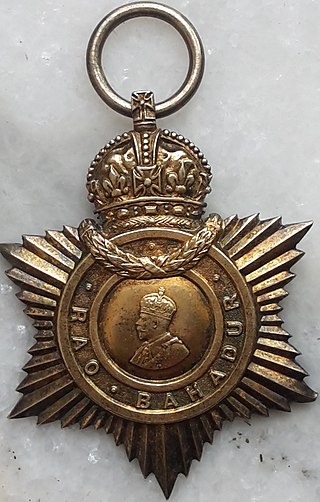
Rai Bahadur and Rao Bahadur, abbreviatedR.B., was a title of honour bestowed during British rule in India to individuals for outstanding service or acts of public welfare to the Empire. From 1911, the title was accompanied by a medal called a Title Badge. Translated, Rai or Rao means "King", and Bahadur means "Brave". Bestowed mainly on Hindus, the equivalent title for Muslim and Parsi subjects was Khan Bahadur. For Sikhs it was Sardar Bahadur.
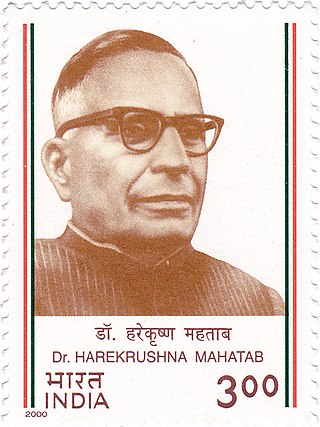
Harekrushna Mahatab was the leader of the Indian National Congress, a notable figure in the Indian independence movement and the Chief Minister of Odisha from 1946 to 1950 and from 1956 to 1961. He was popularly known by the sobriquet "Utkal Keshari".

Bhubaneswar Behera was an engineer, writer and scholar from the Kalahandi district of Odisha.
Nirmal Kumar Bose was a leading Indian anthropologist, who played a formative role in "building an Indian Tradition in Anthropology". A humanist scholar with a broad range of interests, he was also a leading sociologist, urbanist, Gandhian, and educationist. Also active in the Indian freedom struggle with Mahatma Gandhi, he was imprisoned in 1931 during the Salt Satyagraha.
The history of Kalahandi goes back to the primitive period where a well-civilized, urbanized, and cultured people inhabited this land mass around 2000 years ago. The world's largest celt of Stone Age and the largest cemetery of the megalithic age have been discovered in Kalahandi. This shows the region had a civilized culture since the pre-historic era. Asurgarh near Narla in Kalahandi was one of the oldest metropolises in Odisha whereas the other one was Sisupalgarh near Bhubaneswar. Some other historical forts in the region includes Budhigarh, Amthagarh, Belkhandi and Dadpur-Jajjaldeypur. This land was unconquered by the great Ashoka, who fought the great Kalinga War, as per Ashokan record. In medieval period the region had played a prominent role to link South India, Eastern India and Central India region and witnessed the battle ground for Somavamsi, Chola, Kalachuris of Kalyani and Eastern Ganga dynasty. Kalahandi region was the main route for Chola to attack Subarnapur.

Prem Ram Dubey was an Indian lawyer and politician. He was the founding father of the Kosal State Movement, which campaigns for statehood for Western Odisha.
Bhawanipatna is classified as one of the major tourist destinations by the tourism Department of Government of Odisha. All the tourist attraction in Kalahandi region comes under Bhawanipatna jurisdiction. Though tourist potential of Kalahandi has not been fully exploited, the land is rich in terms of waterfalls, forest and wild life, natural scenery, tribal life, mountains, agriculture field, historical sites and handicrafts. The best time to visit Kalahandi region is from October to March. April–June is hard Summer and temperatures may reach 45 degree C and June to August is the Monsoon Season. While it occasionally rains in September, the Nuakhai festival is help in September and Dassara is held at the end of September or early October. The celebration of Chaitra occurs in February/March.
Prem Kishan Khanna was an Indian freedom fighter and active member of the Hindustan Republican Association from Shahjahanpur, Uttar Pradesh. Khanna worked as a contractor for the Indian Railways and was a close associate of the noted revolutionary Ram Prasad Bismil.
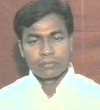
Bhakta Charan Das is an Indian politician. He was a member of the Indian Parliament and represented the Kalahandi constituency in the 15th Lok Sabha.
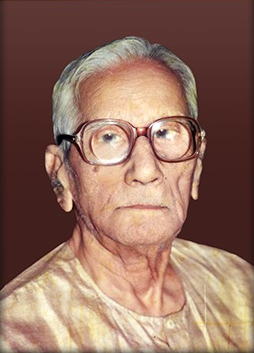
Dr. Radhanath Rath was a newspaper editor, freedom fighter, social worker and politician from Odisha. He was the editor of The Samaja, one of the leading newspapers of Odisha.

Binod Kanungo (1912–1990) was an Odia author, freedom fighter, Gandhian, educator, social reformer and compiler of the Gyana Mandala, which is the greatest encyclopaedia in the Odia language. He also won the Odisha Sahitya Akademi Award for his travelogue Runa Parishodha (1983). He was also a veteran freedom fighter and notable educationist. He was awarded with India's fourth highest civilian honour "Padmashree". He died on 22 June 1990.

Pratap Chandra Sarangi is an Indian politician from Balasore, Odisha. He serves as a National Executive Member of the Bharatiya Janata Party (BJP) and a member of parliament from the Balasore Lok Sabha constituency in Odisha. He was the Minister of State in the Government of India for Animal Husbandry, Dairying and Fisheries and Micro, Small and Medium Enterprises (2019-2021) and a two-time member of the Odisha Legislative Assembly from Nilgiri (2004-2014). Sarangi was Odisha's state unit chief of the Bajrang Dal when Graham Staines, an Australian Christian Missionary, and his two minor children were burnt alive by the members of the right-wing outfit in 1999. Later he was involved in 2001 Odisha Assembly attack.
Digambara Patra is a professor of Chemistry at the American University of Beirut.

Umesh Chandra Patra, also known as Dr. U. C. Patra was a zoologist, intellectual, scholar, professor and administrator from the state of Orissa, India. He was head of the Department of Zoology at Ravenshaw University. He started his teaching career as a lecturer in Zoology at Shri Krushna Chandra Gajapati College, Paralakhemundi and after a long stint at various government colleges, he retired from Ravenshaw University in 2001. He was a valuable member of the Zoological Society of Odisha State.
Maharaja Pratap Keshari Deo was an Indian politician. He was the last ruler of Kalahandi State from 1939 to 1947. Post-independence, he was elected from the Kalahandi constituency in Odisha to the Lower House of the Indian Parliament the Lok Sabha. He was deputy Leader of the Opposition, Orissa Legislative Assembly, 1952—1956.
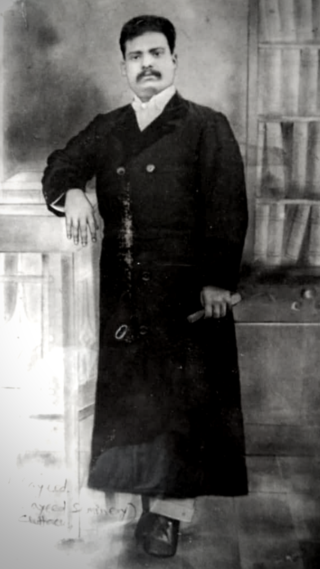
Sayeed Mohammed was an Indian Odia educationist, freedom fighter and philanthropist. In 1913, he founded the Moslem Seminary at Cuttack, which is regarded as the second nationalist school of Odisha. Sayeed is known for his activism against the British in the early 1900s. He was one of the prominent members of the Utkal Sammilani. In 1922, Sayeed along with Ekram Rasul co-founded the All Odisha Khilafat Committee, in the wake of the non-cooperation movement in India.

Vairab Kartikeyan Pandian, is a Former 5T Secretary from the state of Odisha and a former IAS officer.













